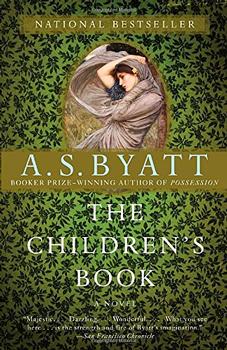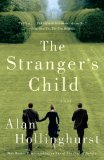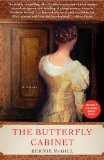Summary | Excerpt | Reading Guide | Reviews | Beyond the book | Read-Alikes | Genres & Themes | Author Bio

A Novel
by A.S. ByattWhen I first plunged into The Children's Book, what struck me was how real the characters were. Olive Wellwood and her circle of friends and family didn't feel like characters, they felt like people. From just a few sentences, I felt like I knew these children who were wandering through the South Kensington Museum in London, looking for adventure. As I continued to read, I was impressed with how A. S. Byatt succeeded in making the innovations of the late 19th century, like electric lighting and automobiles, seem rare and magical without being trite.
The expansive scope of this novel, and the attention to detail in so many areas - theater, pottery, fairy tales, anarchy, socialism and many others - is impressively handled and rarely does the history interfere with the storytelling. The historical characters (Oscar Wilde, Kaiser Wilhelm II, Emma Goldman, Queen Victoria, Auguste Rodin) are used in such a way that knowing the history can increase the reader's understanding, but is not necessary to follow the fictional characters and storyline. We visit the Exposition Universelle of 1900 in Paris with several of the characters, each with a different area of interest, so we discover how ornate and impressive it was without ever having heard of it before.
While this is clearly a historical novel, it does not read like one until the end - when World War I is close at hand. The historical connections are never far away, but most of that history is conveyed directly through the lived experiences of the characters. One daughter is a suffragette, another trains to be a doctor. One nephew flirts with the Anarchists. Young women get pregnant out of wedlock, and poor folks die from hazardous working conditions. None of these occurrences are statistics, they are real situations portrayed with the nuance and ambiguity of lived experience. The younger generation gets the most attention, with the adults serving mostly to make their lives difficult and complicated.
I thoroughly enjoyed the novel until the advent of World War I. While I'm sure that is partly because it is hard to watch characters you love go through tragedy, I think the author spends a lot less time on the inner lives of the characters once the children become adults. I am sure this is deliberate on Byatt's part - these happy lives (while far from perfect) become increasingly dark. I felt like the first half of the novel was much more character-driven, whereas the last quarter was mostly plot. That plot was certainly well-written and exciting, but not as fulfilling. I was disappointed that the ending didn't come with a little more of the clarity and understanding I had enjoyed so much in the first part of the book.
There is a point in the novel where an author - free-loving nudist Herbert Methley - gives a lecture and says that "It was not possible in a novel to describe most of the world as it really was." It is obvious that Byatt is trying to refute that statement with this novel. She attempts to portray life during this difficult period as it truly was, and for this generation there were few happy endings.
Useful to know
The Children's Book is loosely based on the life of children's writer E. Nesbit.
![]() This review was originally published in The BookBrowse Review in October 2009, and has been updated for the
September 2010 edition.
Click here to go to this issue.
This review was originally published in The BookBrowse Review in October 2009, and has been updated for the
September 2010 edition.
Click here to go to this issue.

If you liked The Children's Book, try these:

by Alan Hollinghurst
Published 2012
A magnificent, century-spanning saga about a love triangle that spawns a myth, and a family mystery, across generations.

by Bernie McGill
Published 2012
Vivid, mysterious, and unforgettable, The Butterfly Cabinet is Bernie McGill's engrossing portrayal of the dark history that intertwines two lives - a haunting novel full of frightening silences and sorrowful absences that build toward an unexpected, chilling truth.
Your guide toexceptional books
BookBrowse seeks out and recommends the best in contemporary fiction and nonfiction—books that not only engage and entertain but also deepen our understanding of ourselves and the world around us.